

 Three decades ago, women in South Los Angeles stood up against the City of Los Angeles to block the siting of the city’s solid waste incinerator known as the Los Angeles City Energy Recovery (LANCER) project. Organized as the Concerned Citizens of South Central Los Angeles, women successfully fought back against powerful industry and business interests and complicit local decision makers, to block an additional polluting facility from being sited in a neighborhood already bearing the burden of toxic waste and abandoned factories.
Three decades ago, women in South Los Angeles stood up against the City of Los Angeles to block the siting of the city’s solid waste incinerator known as the Los Angeles City Energy Recovery (LANCER) project. Organized as the Concerned Citizens of South Central Los Angeles, women successfully fought back against powerful industry and business interests and complicit local decision makers, to block an additional polluting facility from being sited in a neighborhood already bearing the burden of toxic waste and abandoned factories.
While communities across the U.S. began organizing around environmental justice, powerful waste industry interests continued their expansion, while avoiding increased opposition to incineration plants and waste plants in general. The California Waste Management Board retained Los Angeles-based lobbying firm Cerrell Associates to produce a memo outlining which communities were least likely to oppose waste incinerators. The memo, titled “Political Difficulties Facing Waste-to-Energy Conversion Plant Siting.” (aka the “Cerrell Memo”) presented a demographic analysis identifying low-income communities of color,
» Read more about: L.A.'s Environmental Justice and Waste History Lesson »
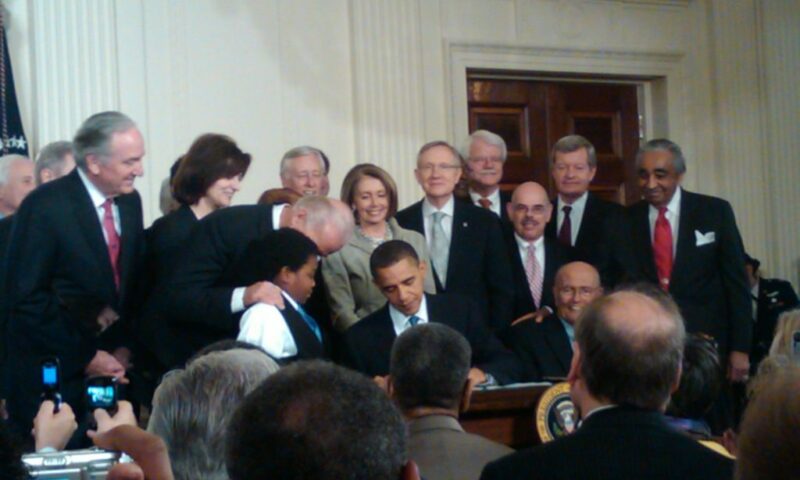
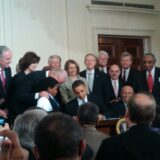
Four years ago, my wife and I planted an oak tree on Election Day – our Obama Oak – at the front of our house. The remarkable thing about the tree is how long it holds on to its leaves. I see it from my window, now doubled in height, still holding its crimson leaves, even after Sandy’s winds blew the leaves off of every other tree in the surrounding Taconic Hills. For me, the Obama Oak’s hardiness is a testament to perseverance of a health reform movement and a president, who together completed the 100-year quest to make health care a government-guaranteed right in the United States. With the president’s reelection, that quest is now secure and a new era in American health care begins.
I am sure that skeptics on the left will scoff at the assertion that the ACA launches a new era in health care. After all, a key to securing congressional passage of the Affordable Care Act was that the law did not upend the current system of health care financing in the United States.

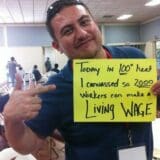
Long Beach hotel workers and community activists made history Tuesday, passing a living wage ballot measure that will help lift 2,000 people in that city’s tourism industry out of poverty.
Long Beach was one of three cities nationwide that passed minimum wage measures (San Jose and Albuquerque were the others), and the only one that enacted a law with paid sick leave. Workers at Long Beach’s large hotels will now earn at least $13 per hour and will have five paid sick days a year.
The passage of Measure N is the culmination of a multi-year effort by LAANE, UNITE HERE! (the union representing tourism industry workers) and the Long Beach Coalition for Good Jobs and a Healthy Community to build grassroots power in Long Beach, a city that for decades has been dominated by business interests largely disinterested in the huge numbers of working poor. Beginning with a large-scale civic engagement project,
» Read more about: Election 2012: Huge Election Win for Long Beach Hotel Workers »


For me, especially once Mitt Romney named Paul Ryan as his running mate, the presidential race became a contest between two Americas: one traditional, Christian, white and wealthy; the other was, well, the Other — a pioneering America of varied ethnicities, incomes and spiritual traditions. The Rainbow Coalition that Jesse Jackson first named a generation ago has come to fruition and it’s a bright day for America. Obama garnered 70 percent of the Latino vote, 70 percent of the Asian vote, 93 of the black vote, 73 percent of the gay vote and close to 60 percent of the female vote. We once again proved that this country is always changing, and that change is our strength.
Obama’s victory is thus history’s victory, the people’s victory, and a victory for all those who believe we succeed best and most when we work together across the so-called “lines” that tradition and history have often put between people.
» Read more about: Election 2012: Diversity Takes Center Stage »
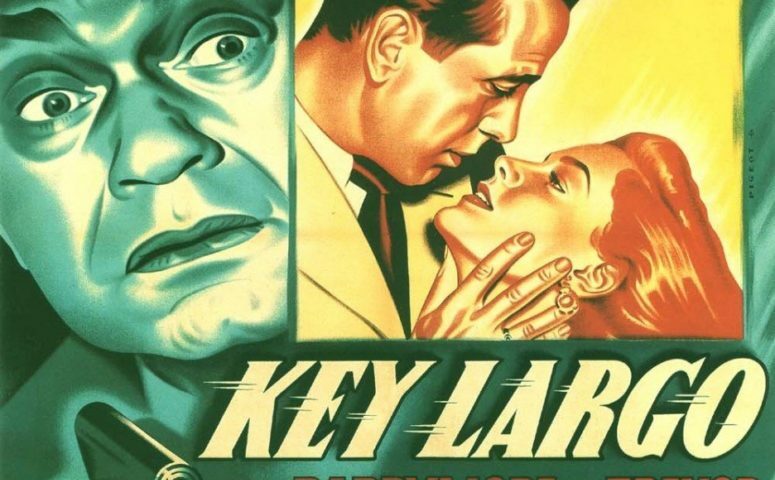
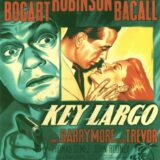
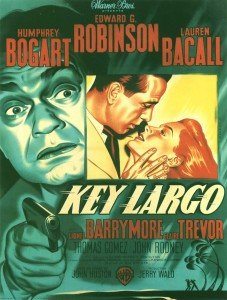 When asked by prospective employers to describe my life’s work, I generally say that I have toiled as a writer on the extreme fringes of the entertainment industry, and most of that in New York. I’m far more familiar with the fantasies peddled by the world of movies and the theater than the one that was being sold this year to Californians by a consortium of billionaires, religious cranks, hedge-fund managers and libertarian extremists bent on financially kneecapping California labor out of the state’s political picture.
When asked by prospective employers to describe my life’s work, I generally say that I have toiled as a writer on the extreme fringes of the entertainment industry, and most of that in New York. I’m far more familiar with the fantasies peddled by the world of movies and the theater than the one that was being sold this year to Californians by a consortium of billionaires, religious cranks, hedge-fund managers and libertarian extremists bent on financially kneecapping California labor out of the state’s political picture.
Yet when Frying Pan News offered me an election-season gig as a Prop. 32 research assistant to investigative reporter Matthew Fleischer, I didn’t hesitate. I mean, I was no less qualified to look into the issue than the average voter.
No sooner did I begin to track down Prop. 32’s backers than they began emerging as a virtual Who’s Who of the same well-heeled special interests that their initiative was promising to weed out: Bizarre,
» Read more about: Election 2012: How I Spent My Autumn Vacation »
Triumph of the Numbers
Signing off last night, Brian Williams on NBC said something about how the presidential election defied the very idea of prognostication. All night the result was characterized as a surprise, which makes sense given how often television analysts before the election described this race as a toss-up, or too close to call.
Last night was the first time I’d watched any television news since Obama’s 2008 win and it was a good reminder why. Tuesday morning I searched for election predictions, and came up with 11 sites that crunched the numbers and made predictions1. All 11 predicted an Obama victory. One of the 11 expected Obama to lose Colorado, and two expected him to lose Virginia, but the rest were up in the air only about Florida (which was genuinely too close to call).
There was, in the run-up, a fair bit of criticism of such predictions,
» Read more about: Election 2012: Sure Things and Safe Bets »


It’s a curious feeling, this brown-becoming, the “Latino vote” hurling itself over the fence as it were, saving Barack Obama from the ignominy of becoming the first black president to lose a reelection bid. I’ve been writing about the potential of the Latino vote going on three decades, and although we’ve had inklings of what kind of power it can wield (such as when it modestly pushed a few swing states toward George Bush in 2004), this time it’s at the center of the electoral narrative.
There was George Will on ABC, minutes after the election was called, talking about how Barack Obama could now put “immigration reform front and center, giving the Republicans a reef upon which they can wreck themselves.” Brian Williams and all the old school network anchors welcomed the “non-Cuban Hispanic” cohort (read: Mexicans, Central Americans, Puerto Ricans) to the national story.
» Read more about: Election 2012: Obama's “Non-Cuban Hispanic” Saviors »


Mitt Romney never had a chance.
Even in the media maelstrom that painted an electorate divided not merely between Democrat and Republican, but between rote decency and full-throated venality — I never believed the story was that simple.
Make no mistake, there was plenty of comic-book villainy, including overt racism and mushrooming fear of the Other (Obama, immigrants, blacks, unions, etc.) that seemed to be overriding any sense of common good. But none of that stuff could really match the bigger mood of the country—battered but cautious, perhaps too entertained by extremism, but not prone to joining it–which is more like Obama the man than any of us knew.
I’ll take that for now. There’s some encouragement in the fact that the center can hold when the margin that’s been fighting to replace it for the last four years is so utterly unappealing, regressive and downright undemocratic.
Nor can money buy everything.


What do weather and women’s bodies have in common?
Both figured dramatically this election season, forcing debate on issues candidates would have preferred to skitter right past. And both had a decisive influence on the vote when it became clear that certain candidates, mired in superstition and ignorance, were using theology to make decisions on matters best left to science. And, as it turned out, weather and women both had ways of shutting that whole thing down.
If Election Day 2012 was a referendum on anything, it was science, and not just the wizard-like math skills of Nate Silver, author of the New York Times’ FiveThirtyEight blog and statistician extraordinaire. It is not incidental that the same people asserting that women’s bodies refuse to fertilize rapist sperm are the same ones denying that carbon emissions from our burning of fossil fuels have caused the climate to warm, as every reputable scientist insists.
» Read more about: Election 2012: Why Science Was Tuesday's Big Winner »


 It seems like a hopeless conundrum. We need our government – federal state and local – to stimulate the economy and help create jobs. But our government has no money. Or at least less money. So does that mean that it’s foolish – or unfair – to insist that our local, state and governments do “something” to create more and better jobs for people who desperately need them?
It seems like a hopeless conundrum. We need our government – federal state and local – to stimulate the economy and help create jobs. But our government has no money. Or at least less money. So does that mean that it’s foolish – or unfair – to insist that our local, state and governments do “something” to create more and better jobs for people who desperately need them?
Well, no. In fact, there is a lot that our government can do to double or triple the number of jobs that are being created in the U.S. with the same or similar amounts of money. We just have to do things in a smarter and more strategic way to get much better results.
Here’s what I mean. As people may imagine, local, state and the federal governments buy billions of dollars worth of goods and services every year. Think about all of the buses,
» Read more about: Winning More Jobs from Government Investment »